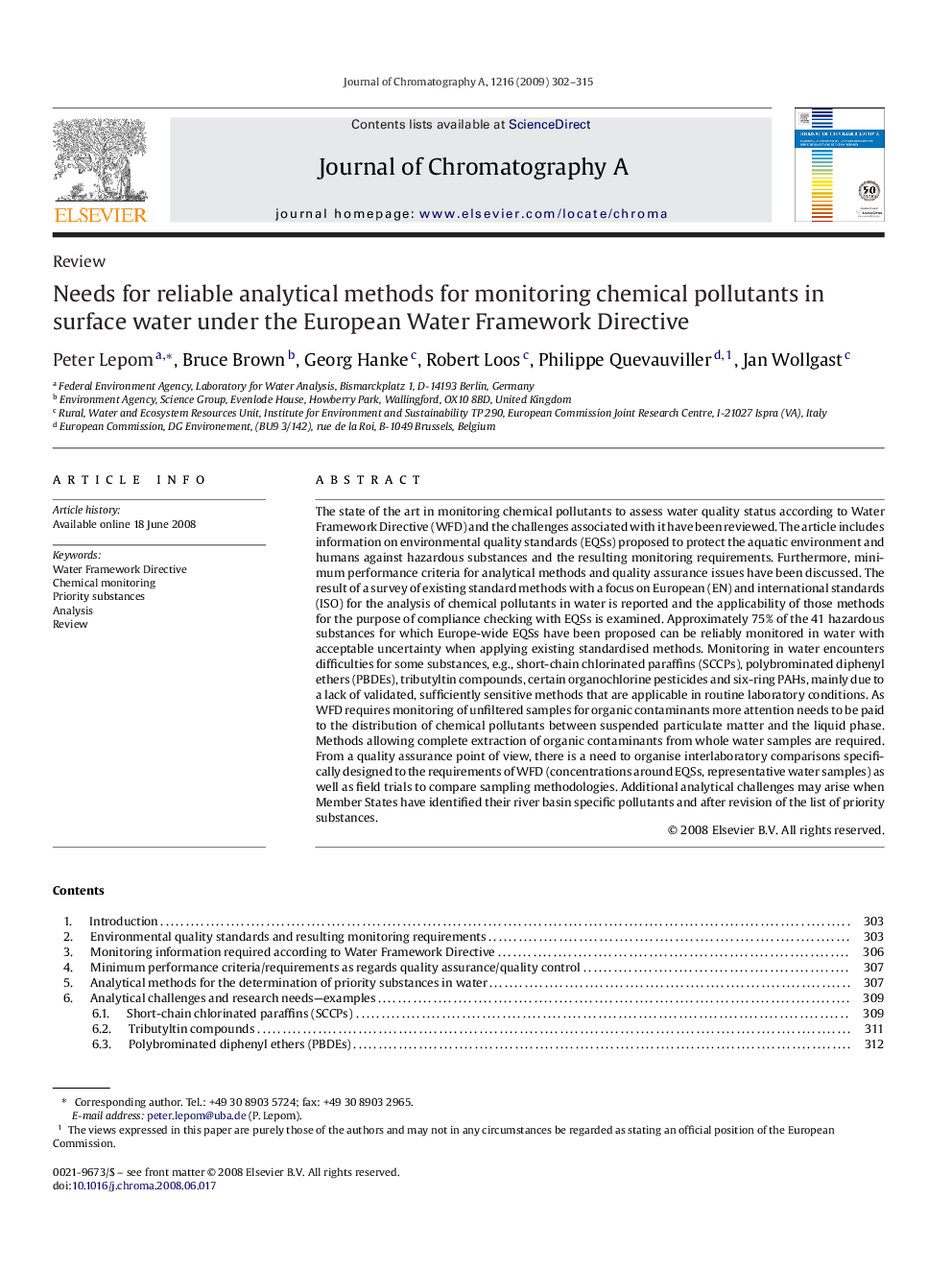| کد مقاله | کد نشریه | سال انتشار | مقاله انگلیسی | نسخه تمام متن |
|---|---|---|---|---|
| 1210757 | 965405 | 2009 | 14 صفحه PDF | دانلود رایگان |

The state of the art in monitoring chemical pollutants to assess water quality status according to Water Framework Directive (WFD) and the challenges associated with it have been reviewed. The article includes information on environmental quality standards (EQSs) proposed to protect the aquatic environment and humans against hazardous substances and the resulting monitoring requirements. Furthermore, minimum performance criteria for analytical methods and quality assurance issues have been discussed. The result of a survey of existing standard methods with a focus on European (EN) and international standards (ISO) for the analysis of chemical pollutants in water is reported and the applicability of those methods for the purpose of compliance checking with EQSs is examined. Approximately 75% of the 41 hazardous substances for which Europe-wide EQSs have been proposed can be reliably monitored in water with acceptable uncertainty when applying existing standardised methods. Monitoring in water encounters difficulties for some substances, e.g., short-chain chlorinated paraffins (SCCPs), polybrominated diphenyl ethers (PBDEs), tributyltin compounds, certain organochlorine pesticides and six-ring PAHs, mainly due to a lack of validated, sufficiently sensitive methods that are applicable in routine laboratory conditions. As WFD requires monitoring of unfiltered samples for organic contaminants more attention needs to be paid to the distribution of chemical pollutants between suspended particulate matter and the liquid phase. Methods allowing complete extraction of organic contaminants from whole water samples are required. From a quality assurance point of view, there is a need to organise interlaboratory comparisons specifically designed to the requirements of WFD (concentrations around EQSs, representative water samples) as well as field trials to compare sampling methodologies. Additional analytical challenges may arise when Member States have identified their river basin specific pollutants and after revision of the list of priority substances.
Journal: Journal of Chromatography A - Volume 1216, Issue 3, 16 January 2009, Pages 302–315